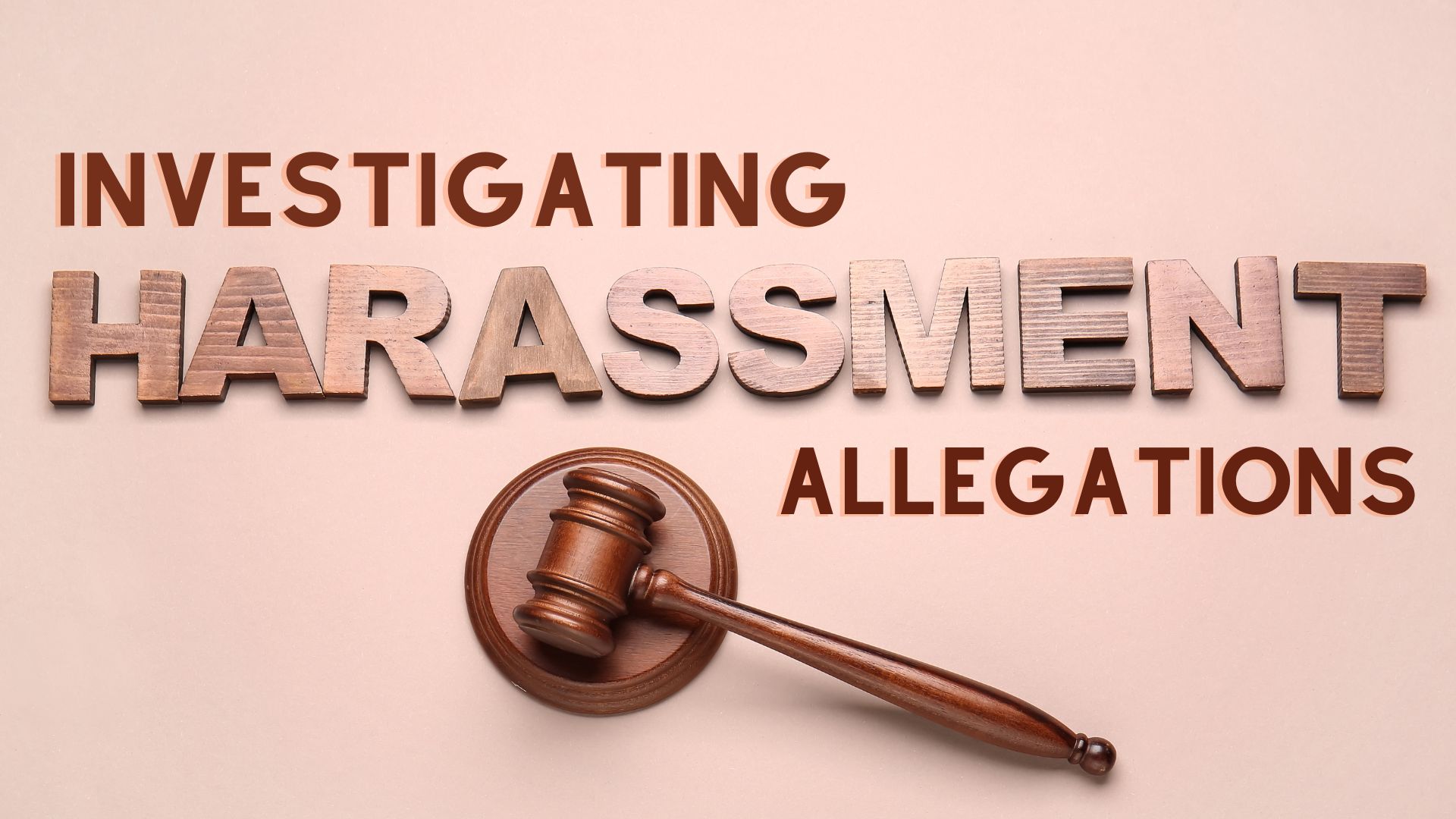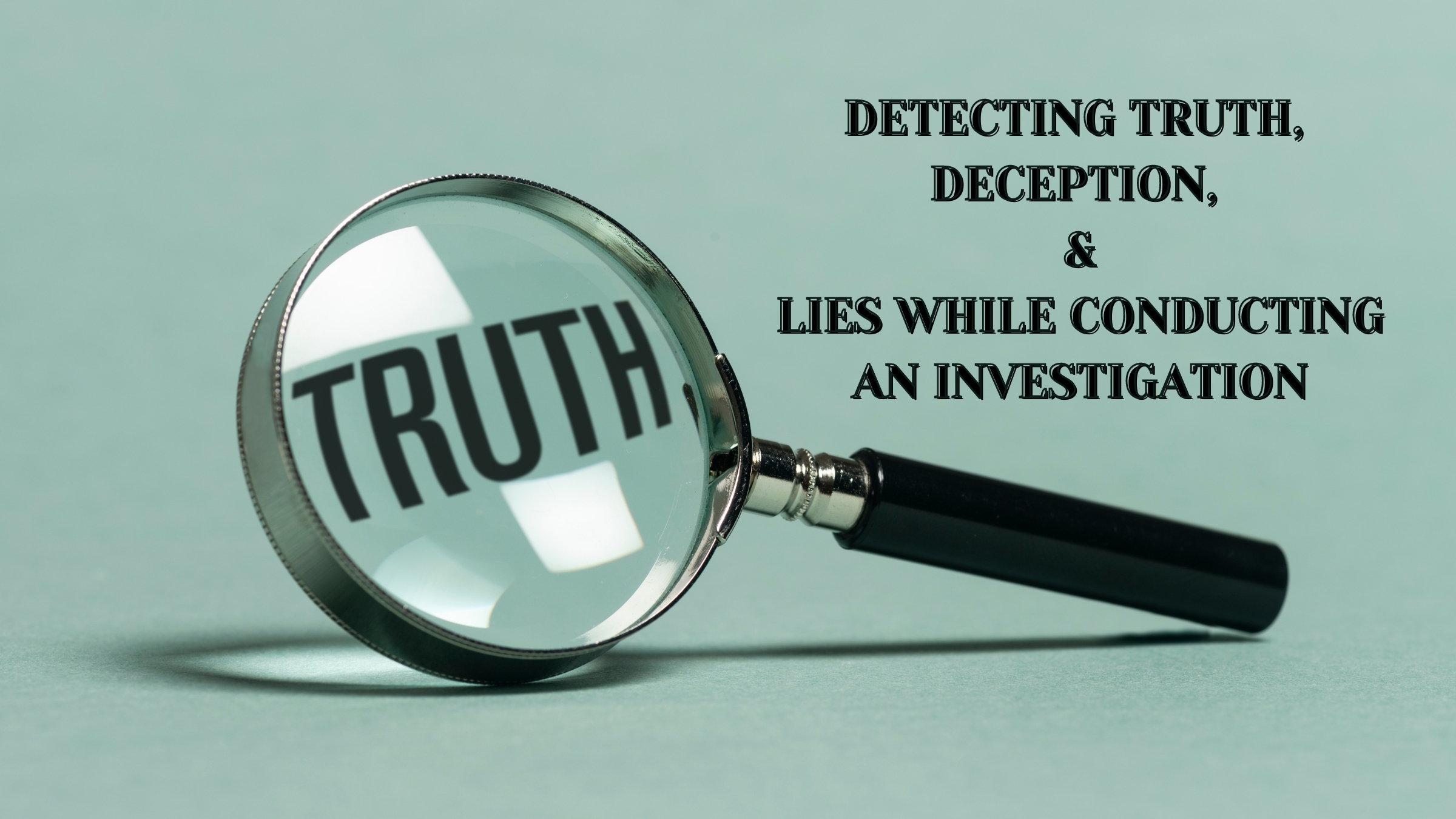Call us: +1-855-202-3299
Email: [email protected]
Investigating Harassment Allegations | Key Considerations for HR Professionals
In today's workplace, addressing harassment allegations is a critical responsibility for human resources (HR) professionals. Conducting thorough and impartial investigations is essential to ensure a safe and respectful work environment for all employees. In this comprehensive guide, we will explore the key considerations HR professionals should keep in mind when investigating harassment allegations.
Understanding Harassment
Harassment in the workplace can take various forms, including verbal, physical and nonverbal behaviours that create a hostile or offensive work environment. It can be based on protected characteristics such as race, gender, age, disability, religion, sexual orientation or national origin. Common examples of harassment include:
- Verbal harassment, such as offensive jokes, slurs or comments.
- Physical harassment, such as unwanted touching or physical intimidation.
- Sexual harassment, including unwelcome advances, requests for sexual favours or other verbal or physical conduct of a sexual nature.
- Cyber harassment, such as sending harassing emails, texts or social media messages.
Importance of Thorough Investigations
Conducting thorough investigations into harassment allegations is essential for several reasons:
- Protecting Employees
Thorough investigations help protect employees from harassment and create a safe and respectful work environment. Promptly addressing harassment allegations demonstrates a commitment to preventing discrimination and harassment in the workplace.
- Legal Compliance
Employers have a legal obligation to investigate harassment allegations promptly and thoroughly. Failure to do so can result in legal liability, including lawsuits, fines and reputational damage. By conducting proper investigations, employers can demonstrate compliance with anti-discrimination laws and regulations.
- Preserving Organizational Culture
Effective investigations uphold organizational values and reinforce expectations for respectful behaviour. By holding perpetrators accountable and providing support to victims, employers can maintain a positive workplace culture built on trust, respect and inclusivity.
Key Considerations for HR Professionals
When conducting harassment investigations, HR professionals should follow a systematic and fair process. Here are key considerations to keep in mind:
- Prompt Action
Take all harassment allegations seriously and respond promptly. Inform the appropriate parties, such as HR personnel, managers or legal counsel and initiate an investigation without delay. Prompt action demonstrates a commitment to addressing harassment and prevents further harm to employees.
- Impartiality
Maintain impartiality throughout the investigation process. Avoid bias or conflicts of interest that may compromise the integrity of the investigation. Assign trained and impartial investigators who can objectively assess the facts and evidence without favouritism.
- Confidentiality
Protect the confidentiality of all parties involved in the investigation. Keep information about the allegations, witnesses and evidence confidential to the extent possible. Avoid discussing the details of the investigation with individuals who do not have a legitimate need to know.
- Documentation
Document all steps taken during the investigation, including interviews, evidence collection and findings. Keep detailed records of witness statements, emails, documents and other relevant information. Accurate documentation helps ensure transparency, accountability and compliance with legal requirements.
- Thoroughness
Conduct a thorough and comprehensive investigation into the harassment allegations. Interview all relevant parties, including the complainant, alleged perpetrator and witnesses. Gather and review documentary evidence, such as emails, text messages or surveillance footage. Consider all available evidence and perspectives before reaching conclusions.
- Confidentiality
Maintain confidentiality throughout the investigation process to protect the privacy and reputations of all parties involved. Avoid disclosing sensitive information to individuals who do not have a legitimate need to know. Assure employees that retaliation against individuals involved in the investigation will not be tolerated.
- Compliance
Ensure that the investigation process complies with applicable laws, regulations and organizational policies. Adhere to legal requirements regarding harassment prevention, reporting and investigation. Consult legal counsel if necessary to ensure compliance with federal, state and local laws.
- Reporting and Follow-Up
Report the findings of the investigation to appropriate stakeholders, such as senior management or legal counsel. Take appropriate disciplinary action if harassment is substantiated, in accordance with organizational policies and applicable laws. Provide support and resources to employees affected by harassment, including counseling, training or other interventions.
Conclusion
Investigating harassment allegations is a complex and sensitive process that requires careful attention to detail, impartiality and adherence to legal requirements. HR professionals play a crucial role in ensuring that investigations are conducted thoroughly, fairly and transparently. By following best practices and key considerations outlined in this guide, HR professionals can effectively address harassment allegations and promote a culture of respect, inclusivity and accountability in the workplace.







